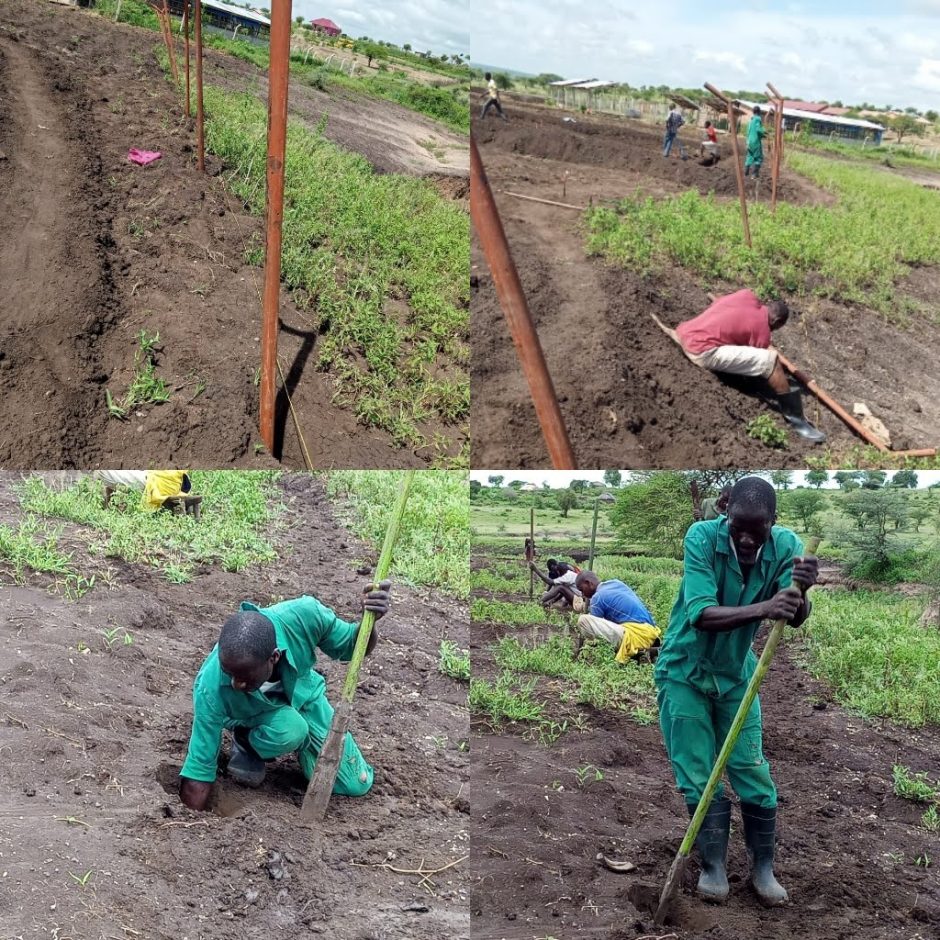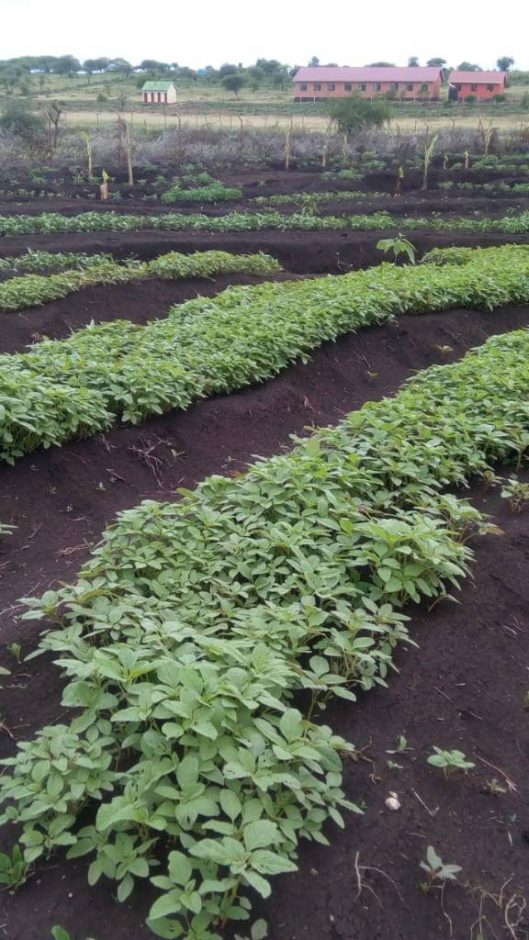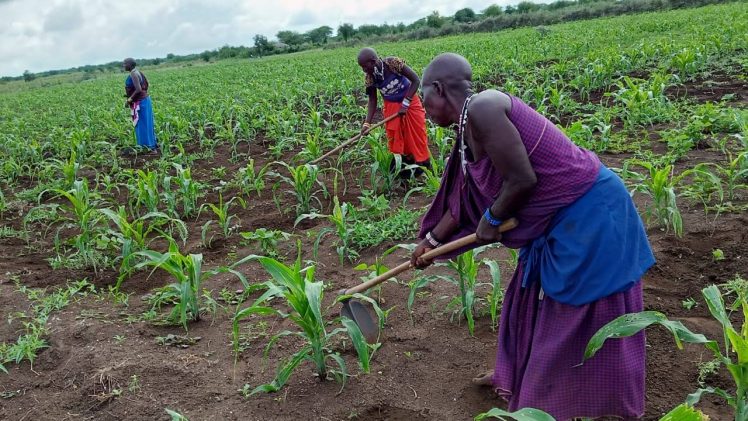Phase 1 of the East Africa Permaculture Project in Makuyuni, Tanzania, concluded in June 2019. It was a huge success!
Plans soon began for Phase II to begin in March 2020.
The plan would see the cultivation of an additional 7 acres of farmland. This 7 acres is next to the land developed for the community’s use in Phase 1.
Thirty workers spent days clearing and breaking up the land. They collected manure to improve soil quality and dug swales for water flow. The swales and planting areas are designed to follow the natural contours of the land. This ensures maximum water retention.
 |
Raised vegetable beds where created. Walkways are laid out to protect the crops. Thus, foot traffic does not compact the soil when plants are being watered.
A large reservoir was dug next to Makuyuni village. This will capture water during the rainy season to water the crops in the dry season. In addition, two new 3,000 litre water tanks were installed on large concrete platforms. These will catch rainwater from the roof and gutter system.
Fencing was erected using concrete footings, metal poles and wire. This will deter grazing animals from wandering into the newly planted areas to eat the developing plants. Madras thorns got planted as a natural fencing for future garden expansion plans.
With the ground prepared, planting began mid March. The crew planted three hundred trees of various species and many field crops. This included – banana, mango, avocado, watermelon, maize, potatoes, sweet potatoes, cow peas, sugar cane and yams.
 |
A crop nursery developed in Phase 1, had seedlings ready for transplant. This reduced the need for the purchase of new plant material. The fruit trees act as a windbreak and provide shade and soil stability.
The school garden from Phase 1 now provides more food than the school needs to feed its students! The goal is that surplus food will fund school projects such as rearing chickens and goats.
Parents said their children’s health improved from regular meals. Since the farm’s development, school enrollment has increased. A food storage building was completed to hold the surpluses. Farm workers get paid with produce from the farm.
As the fourth week of this project drew to completion the world changed. A new virus was now known worldwide, COVID 19. Sadly, the hopes of selling surplus produce to local businesses and tourist resorts will not happen for some time. Lack of tourists means no food sales to local restaurants and resorts. However, we can look at the bright side of this project. We have a group of wonderful Maasai people who have food security, and access to water. And, most important, the knowledge of the practice of permaculture. This will carry them far in adapting to their changing environment.


